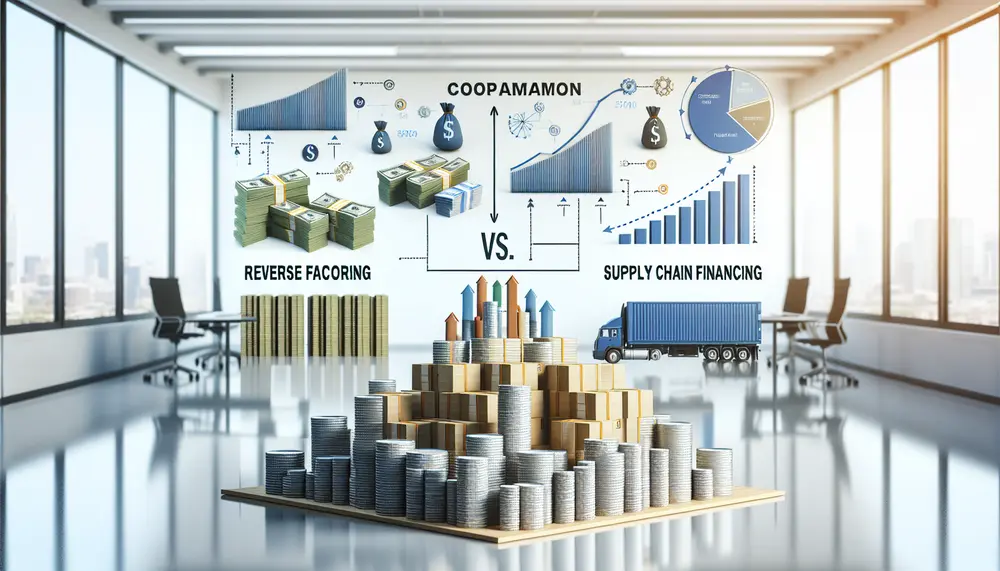Variable cost
Variable cost
Understanding Variable Costs
When we talk about variable costs, we're referring to expenses that change based on the level of production or services provided. These costs fluctuate with the volume of output; the more you produce, the higher the variable costs. Examples include raw materials, packaging, and shipping fees. In contrast to fixed costs, such as rent and salaries, which remain constant regardless of output, variable costs are directly tied to business activity.
Variable Costs in Financial Factoring
In the realm of financial factoring, variable costs play a significant role. Financial factoring is a process where businesses sell their accounts receivable (invoices) to a third party at a discount to get immediate cash. The variable costs incurred in this scenario might include the discount rate applied to the invoices sold, and any additional service fees charged by the factoring company. These costs can vary depending on the amount of invoices factored and the terms agreed upon.
Why Does It Matter?
Understanding variable costs is crucial for businesses that use financial factoring. Since these costs can differ each month, businesses need to track them closely to manage cash flow effectively. Keeping a close eye on variable costs helps in forecasting expenses and setting the right price for goods or services. By controlling variable costs, companies can improve their profit margins, especially when they're involved in financial factoring agreements.
Examples of Variable Costs in Factoring
Let’s look at an example. Imagine a manufacturing company decides to factor its invoices to maintain a steady cash flow. The cost of the goods sold, primarily composed of raw materials and direct labor, will be considered variable costs. If the company produces more, it will need to sell more invoices to the factoring firm, which could lead to higher variable costs due to increased discount rates. Properly monitoring these variable costs is essential for the financial health of the business.
How to Control Variable Costs
Businesses can control their variable costs in financial factoring by negotiating better rates and terms with the factoring company. They could also optimize operational efficiencies to reduce the amount of raw materials used or streamline logistics to cut shipping costs. Incorporating strategies to minimize waste and enhance productivity will result in lower variable costs, making financial factoring more beneficial for the business.
Blog Posts with the term: Variable cost

The article compares reverse factoring and supply chain financing, highlighting their differences in initiation, process, flexibility, cost structure, and risk management. It explains that while both methods aim to improve cash flow and strengthen financial relationships within the supply chain,...

Financing and factoring are two financial strategies for managing cash flow, with financing involving loans to be repaid over time and factoring entailing the sale of accounts receivable for immediate cash. Each option has distinct terms, costs, benefits, and impacts...

Factoring of debts allows businesses to sell their accounts receivable for immediate cash, improving liquidity and enabling them to manage short-term expenses and growth opportunities without incurring new debt. Unlike traditional lending which depends on the business's creditworthiness, factoring focuses...

Export factoring is a financial solution that allows exporters to sell their accounts receivable for immediate cash, improving liquidity and reducing administrative burdens. This method offers benefits such as risk mitigation, access to advanced tools, improved financial ratios, and credit...

Invoice financing provides businesses with immediate cash by leveraging unpaid invoices, while bank acceptance guarantees payment in trade transactions through a buyer's bank. Each serves distinct purposes: invoice financing improves cash flow, whereas bank acceptance builds trust and facilitates international...

Factoring provides trucking companies with immediate cash flow by allowing them to sell unpaid invoices to a factoring company, which advances most of the invoice value upfront and collects payment from clients. This financial service improves liquidity, reduces credit risk,...

Factoring and the Zero Product Property (ZPP) simplify financial equations by isolating key variables, helping businesses identify inefficiencies and optimize cash flow. By breaking down components like revenue, costs, or operational factors step-by-step, ZPP provides clarity for targeted solutions to...